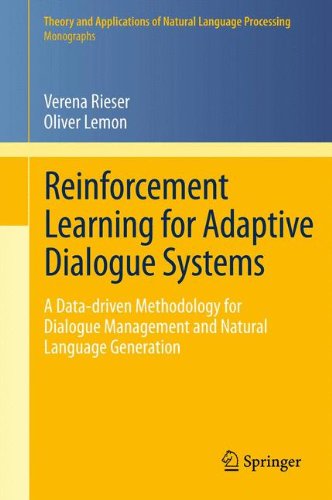

Most ebook files are in PDF format, so you can easily read them using various software such as Foxit Reader or directly on the Google Chrome browser.
Some ebook files are released by publishers in other formats such as .awz, .mobi, .epub, .fb2, etc. You may need to install specific software to read these formats on mobile/PC, such as Calibre.
Please read the tutorial at this link: https://ebookbell.com/faq
We offer FREE conversion to the popular formats you request; however, this may take some time. Therefore, right after payment, please email us, and we will try to provide the service as quickly as possible.
For some exceptional file formats or broken links (if any), please refrain from opening any disputes. Instead, email us first, and we will try to assist within a maximum of 6 hours.
EbookBell Team

4.0
76 reviewsThe past decade has seen a revolution in the field of spoken dialogue systems. As in other areas of Computer Science and Artificial Intelligence, data-driven methods are now being used to drive new methodologies for system development and evaluation.
This book is a unique contribution to that ongoing change. A new methodology for developing spoken dialogue systems is described in detail. The journey starts and ends with human behaviour in interaction, and explores methods for learning from the data, for building simulation environments for training and testing systems, and for evaluating the results. The detailed material covers: Spoken and Multimodal dialogue systems, Wizard-of-Oz data collection, User Simulation methods, Reinforcement Learning, and Evaluation methodologies.
The book is a research guide for students and researchers with a background in Computer Science, AI, or Machine Learning. It navigates through a detailed case study in data-driven methods for development and evaluation of spoken dialogue systems. Common challenges associated with this approach are discussed and example solutions are provided. This work provides insights, lessons, and inspiration for future research and development – not only for spoken dialogue systems in particular, but for data-driven approaches to human-machine interaction in general.